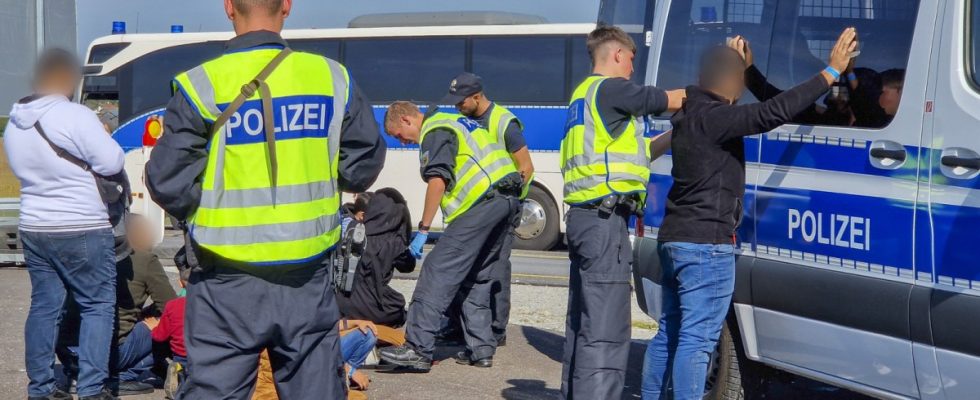Since the Corona restrictions have been lifted and traveling has become easier again, the number of illegal entries and smugglings into Germany has also increased. The Munich I public prosecutor’s office alone initiated around 9,500 proceedings with this background in 2023, around four thousand more than in the previous year. Senior Public Prosecutor Hans Kornprobst gave these figures when he presented a new unit in his office this week: Specialist Department XIX has been dealing with immigration criminal matters in the broadest sense since December; It has recently been headed by senior public prosecutor Florian Schlosser.
The 54-year-old emphasizes that his department is not concerned with immigration law and deportations, but with violations of entry and residence regulations, asylum or passport rules. “An area with an incredible number of special laws,” explains Schlosser, with “regulations that are hidden in many different laws.” One thing was just added on February 27th: a “Repatriation Improvement Act”. This particularly tightens penalties for smuggling crimes.
In order to be able to react to the increasing mass of procedures, a team was put together in which various competencies are bundled. In addition to Schlosser, four prosecutors are not busy with anything else; three others are at least partially involved.
“Many proceedings end relatively quietly because there is no crime or only a minor one,” explains Kornprobst; several thousand would be hired almost immediately. “Flight-related illegal entries” such as those from Ukraine, for example, go unpunished, explains the head of the authority. Nevertheless, all people must first be recorded, even if it is foreseeable that procedures will be stopped, for example if asylum is applied for. “The number of complex procedures is relatively small,” says Kornprobst.
These can sometimes last longer than a year, as was the case with a Turkish smuggler who has been in custody in Stadelheim since the end of January. The police discovered him in September 2022 following a tip from a resident. He became suspicious when a couple with four children changed from a silver Nissan with an Italian license plate to a black Mercedes with a German license plate in a parking lot in Kreuth am Tegernsee.
After the Nissan was checked twice in the border area between Garmisch and Mittenwald in October 2022, the driver re-registered the car and got a new license plate. And although the Mercedes owner exercised his right to refuse to testify, the officers found the father of the family who had been smuggled in and questioned him.
The tariff is between 8,000 and 16,000 euros
As the investigating public prosecutor Maximilian Heindl reported, the man identified his smuggler based on photos presented. In November 2023, the Munich District Court issued an international arrest warrant, the Turk was arrested in Italy shortly before Christmas and transferred to Germany at the end of January. His cell phone is still being evaluated in order to get to those behind it.
Most of the money paid for smuggling usually ends up with them; The public prosecutor’s office knows that the tariff is between 8,000 and 16,000 euros and is due after delivery to the destination country. The transporter only receives a small portion of this.
A Turkish truck driver even came away empty-handed, and because he was also beaten after he had brought people across the border between a load of rubber hoses in September 2022, he opened up in court. Although the man was charged with “smuggling in foreigners using life-threatening treatment,” he got away with a suspended sentence, said the responsible public prosecutor, Carlos Dastis.
In this case, too, an alert passer-by called the police when he saw rows of people climbing out of a truck in a parking lot near Ottobrunn. 37 people, mostly Syrians, were caught during the search; Dastis estimates there could have been up to 54. The interrogations revealed that the people had lain unbuckled on the load for hours, had nothing to eat or drink and could hardly breathe. That’s why some of them hit the chauffeur at the end of the trip and broke his nose.
Even though the Munich I public prosecutor’s office is now keeping a special eye on criminal smugglers, sometimes they still can’t get to the people behind them. Syria is one of the few countries with which Germany does not have a legal assistance agreement.

